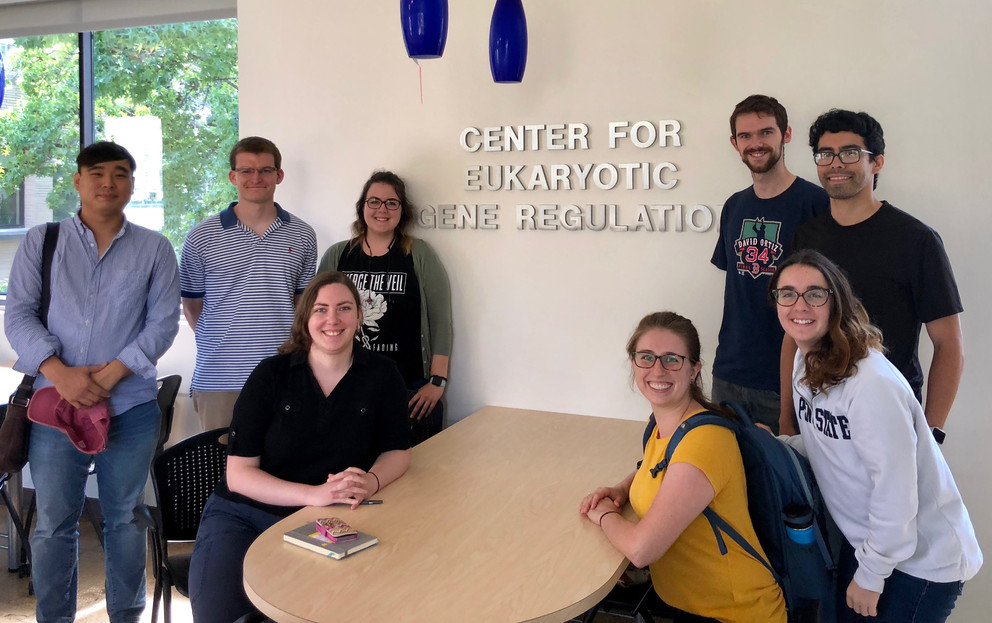MD/PhD student part of gene-regulation training program

A new $2.4 million-dollar program to train graduate students in the area of eukaryotic gene regulation (EGR) has been established at Penn State with funding from the National Institutes of General Medical Sciences of the U.S. National Institutes of Health and from Penn State matching support. The EGR training program will support up to 24 students over a period of five years.
Nearly, all aspects of biology and human disease are rooted in gene regulation — the control of when and in what cells particular genes are used. The precise expression of genes underlies important cellular processes such as development, stem cell regeneration and differentiation, and disease prevention. Our abilities to understand gene expression control is fundamental to learning how to correct the mis-expression of genes to prevent or reverse debilitating human diseases.
The new Eukaryotic Gene Regulation (EGR) Training Program is led by B. Franklin Pugh, Evan Pugh University Professor, Willaman Chair in Molecular Biology, and professor of biochemistry and molecular biology, and involves 18 training faculty from the Departments of Biochemistry and Molecular Biology, Chemistry, and Chemical Engineering, Statistics; and two intercollege graduate programs: Molecular, Cellular and Integrative Biosciences; and Bioinformatics and Genomics.
The EGR training program will train a diverse cohort of student-scientists to have expertise in biophysics, biochemistry, molecular biology, genetics, computational biology, and statistics to address fundamental questions in gene regulation.
Trainees will gain a thorough understanding of the scientific process, responsible conduct in science, fluency in innovative research methodologies, ability to utilize genomics and statistical tools in advancing genome-wide experimental approaches, excellence in cross-disciplinary communication, and leadership in cross-disciplinary research teams.
“I’m really excited about this,” said Jordan Krebs, a student from Penn State College of Medicine’s MD/PhD program who is part of the EGR inaugural class. “For me it provides an opportunity to learn how gene regulation impacts patient therapies.” Krebs’ research aims to apply high-throughput epigenomic analysis to cancer biopsies in the hopes of developing prognostic indicators of treatment outcomes.
Read more about the program in this Penn State News article.
If you're having trouble accessing this content, or would like it in another format, please email Penn State Health Marketing & Communications.
